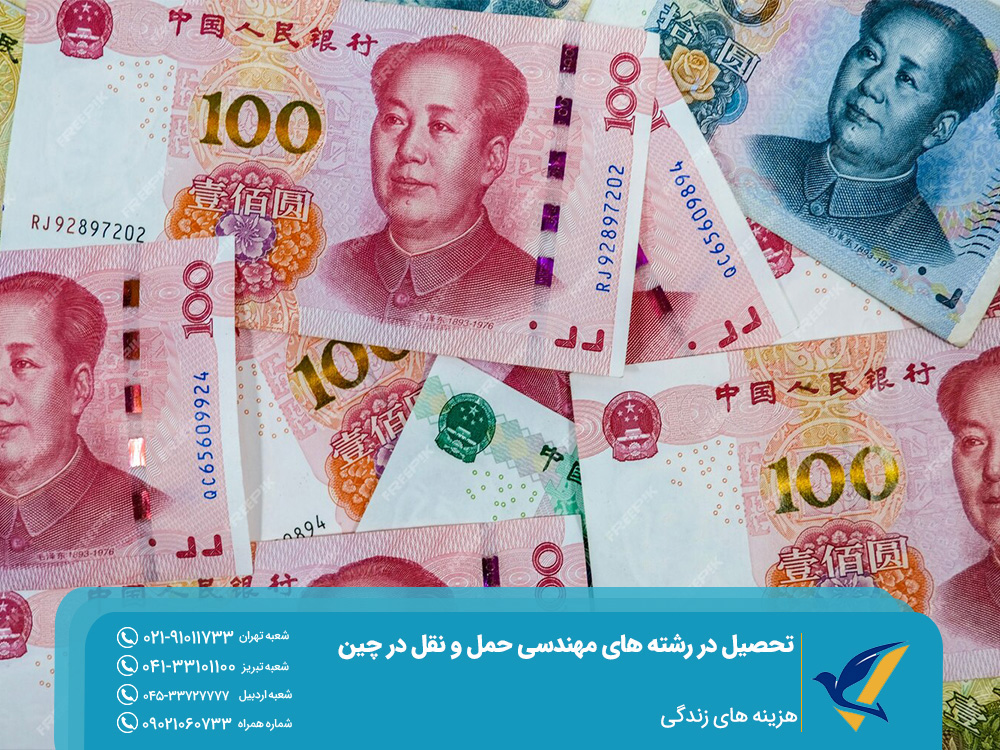Studying Transportation Engineering in China
In an era where global connectivity and sustainable infrastructure are paramount, studying transportation engineering in China is recognized as a cornerstone of modern development. With its unparalleled advancements in high-speed trains, smart cities, and advanced logistics systems, China has emerged as a global leader in this field. China’s top transportation engineering universities are renowned for their rigorous academic programs and cutting-edge research facilities. These institutions provide a dynamic environment for students eager to shape the future of transportation.
With a rich history of innovation encouraged by government initiatives such as Project 211, these institutions combine academic excellence with practical applications, preparing graduates to tackle complex challenges in urban mobility, environmental sustainability, and intelligent transportation systems. In this article, part of the Elm Vira series, we explore the costs of studying transportation engineering in China. Stay with us until the end.
Benefits of Studying Transportation Engineering in China
China has emerged as a global hub for transportation engineering education, offering a combination of high-quality instruction, practical experience, and cultural exploration. With its rapid infrastructure development and leadership in technologies like high-speed rail and smart transportation systems, China provides an unparalleled environment for international students. Below, we examine the benefits of studying transportation engineering in China.

- International-Level Education
China’s top transportation engineering universities offer world-class academic programs strongly supported by government investment. Institutions such as Tsinghua University, Tongji University, and Jiaotong University are recognized among the best for studying transportation engineering in China. These universities provide advanced curricula that integrate theoretical foundations with emerging technologies like autonomous vehicles, big data analytics, and sustainable transportation systems.
Many programs are offered in English, removing language barriers for international students. Additionally, initiatives like the Double First-Class University Project ensure that these institutions maintain high standards with access to state-of-the-art laboratories, simulation tools, and research centers dedicated to transportation innovation.
- Unique Infrastructure Projects
China’s unparalleled infrastructure projects provide hands-on learning opportunities for students. The extensive high-speed rail network, advanced urban metro systems, and smart logistics centers serve as living laboratories. Universities often collaborate with major industrial companies such as China Railway and tech firms like Huawei, offering internships, site visits, and research projects that connect academia with industry. These experiences equip students with real-world skills that distinguish them in the global job market.
- Affordable Costs
The affordability of studying transportation engineering in China is a significant advantage for international students. Compared to Western countries, tuition and living costs in China are relatively economical. Tuition fees for transportation engineering programs typically range between $2,000 and $5,000 per year.
Moreover, China’s top transportation engineering universities and the government provide valuable scholarships that often cover tuition, accommodation, and living expenses. These financial benefits make China an attractive destination for international students from diverse economic backgrounds.

- Career Outlook
China’s strategic focus on global connectivity enhances career prospects for international students. The Belt and Road Initiative (BRI) has increased demand for transportation engineers capable of working on cross-border infrastructure projects. Studying in China provides access to networks and expertise in global transportation systems, positioning graduates to contribute to projects across Asia, Africa, and beyond. Moreover, the multicultural environment at Chinese universities, with students from over 180 countries, fosters intercultural collaboration and global perspectives.
- Cultural and Personal Growth
Studying transportation engineering in China offers significant cultural and personal growth opportunities. International students acquire valuable Mandarin language skills and explore a vibrant culture. Universities support this experience through international student offices, language programs, and cultural activities, enriching student life. Educational migration to China not only facilitates personal development but also cultivates adaptability and resilience—essential traits for engineering careers.
Admission Requirements for Transportation Engineering Programs in China
Studying transportation engineering in China allows international students to access advanced programs at the country’s top universities. China’s leading transportation engineering institutions are known for their involvement in high-speed rail, urban transportation systems, and smart transportation technologies. Below are the key admission requirements for transportation engineering studies in China:
- Academic Requirements
International students applying for a bachelor’s degree in transportation engineering in China must hold a high school diploma with strong performance in mathematics, physics, and chemistry. Some universities require a minimum GPA of 17-18 (on a 20-point scale) for admission. For graduate programs, applicants need a relevant bachelor’s degree with a minimum GPA of 17. Having additional documents such as a detailed resume, a compelling statement of purpose, and recommendation letters from credible sources can improve the chances of acceptance.

- Language Skills
The medium of instruction at many top transportation engineering universities in China is either Chinese or English. International students applying to study transportation engineering in China must provide language proficiency certificates according to the language of the program offered. For English-taught programs, students are required to submit valid scores from tests such as IELTS or TOEFL, with minimum scores of 6.5 and 6.0 for IELTS, and 80 to 90 for TOEFL, respectively.
Applicants from English-speaking countries or those who have completed their education in such countries are usually exempt from providing language certificates. For programs taught in Chinese, students must demonstrate sufficient language ability by providing an HSK certificate (minimum level 4 or 5). If students lack adequate language skills, they are required to attend one-year language preparatory courses offered by the universities.
- Age and Health Requirements
One factor that distinguishes studying in China from other countries is the age restrictions for admission. Applicants for undergraduate transportation engineering programs in China must be under 25 years old. The age limit for master’s and doctoral programs is 35 and 40 years old, respectively. Scholarship recipients may be exempt from these age restrictions. Applicants must be in good physical and mental health and submit a medical examination form dated within the last six months. Additionally, a valid police clearance certificate issued within six months is mandatory for admission to some universities and visa procedures.
- Application Process and Required Documents
The application process for studying transportation engineering in China is conducted online through platforms such as CUAC, CUCAS, or university portals. Due to the competitive nature of admissions, students must submit their applications within the specified deadlines. The process involves preparing documents, completing application forms, paying fees, and uploading necessary materials. Required documents typically include:
- High school diploma
- Academic transcripts
- Letters of recommendation
- Statement of purpose
- Resume/CV
- Language proficiency certificate
- Health certificate
- Proof of financial capability
- Police clearance certificate
- Valid passport, etc.

- Financial and Visa Requirements
International students must demonstrate sufficient financial capability to cover tuition fees and living expenses in China. This process typically involves providing bank statements, scholarship award letters, or financial guarantees. After receiving the admission letter, international students must apply for an X1 student visa at the Chinese embassy or consulate. Holders of the X1 visa are required to convert their visa into a residence permit within 30 days of entering China.
These requirements ensure that international students are well-prepared to succeed in the dynamic field of transportation engineering, not only within China but globally.
Tuition Fees for Transportation Engineering in China
The cost of studying transportation engineering in China is relatively affordable compared to other countries offering similar educational quality. This affordability has attracted many international students to China. The total costs include university tuition, dormitory fees, living expenses, and other miscellaneous costs. Below is a detailed overview of tuition fees for transportation engineering studies in China:
- Tuition Fees
- Tuition fees vary based on the university, degree level, and language of instruction. For undergraduate programs in transportation engineering, international students can expect to pay between $2,000 and $5,000 USD per year. Top universities such as Tongji University, Tsinghua University, and Peking University usually charge higher fees. Master’s degree programs typically range from $3,000 to USD 7,000 per year. Programs taught in English tend to have higher tuition fees; for example, studying at Tongji University in an English-taught program might cost around USD 4,500 per year.

2. Living Expenses
Accommodation on campus is widely available and affordable for students. Dormitory fees for international students usually range from $300 to $1,500 per year, depending on the type of room and facilities. For example, a shared room at Beijing Jiaotong University may cost around $500 per year, while a single room at Tsinghua University costs approximately $1,200. Off-campus housing in major cities can vary between $300 and $600 per month.
Monthly expenses, including food, transportation, and personal costs, can range from $300 to $500 in large cities and from $200 to $350 in smaller cities. Additional expenses include insurance fees ($100 to $150 per year), books and stationery ($100 to $200), visa fees ($100), and other miscellaneous costs ($200).
3. Scholarships
- The Chinese government and its universities offer a wide range of scholarships that can cover all or part of student’s tuition and living expenses. For instance, the Chinese Government Scholarship covers university tuition, accommodation, and a monthly stipend (between $350 and $500). Universities such as Tongji University, Jiaotong University, and Southwest University also provide full or partial scholarships.

Top Universities for Transportation Engineering in China
China is home to several prestigious universities offering specialized programs in transportation engineering, reflecting the country’s rapid infrastructure development and commitment to advancing its transportation systems. The top universities for transportation engineering in China provide advanced facilities, including modern laboratories, research centers, and simulation tools, to maximize student learning and innovation. Many universities collaborate with government organizations and industry leaders, offering students opportunities for internships and real-world projects.
The curriculum at these universities often combines theoretical knowledge with practical skills, covering areas such as traffic management, urban planning, and logistics management. These universities are equipped with modern classrooms, libraries with extensive resources, and access to advanced technologies, creating a supportive environment for research and development in transportation engineering. Some of the best universities for studying transportation engineering in China include:
-
Tsinghua University
-
Beijing Jiaotong University
-
Tongji University
-
Zhejiang University
-
Shanghai Jiaotong University
-
Xi’an Jiaotong University
-
Harbin Institute of Technology, and others.
Summary
Studying transportation engineering in China offers a unique opportunity for students to engage with one of the world’s most dynamic and rapidly evolving infrastructure landscapes. With its strong commitment to advancing transportation systems, China provides an ideal environment for gaining both practical experience and theoretical knowledge. The top transportation engineering universities in China not only deliver rigorous academic programs but also foster collaboration with industry leaders and government organizations. These universities ensure that students are well-prepared for the challenges of modern transportation.
The cost of studying transportation engineering in China is significantly more affordable compared to Western and European countries. This affordability, combined with world-class education, makes China an excellent destination for international students. In this article, we have aimed to provide you with everything you need to know about studying transportation engineering in China. For more information and free consultation regarding educational migration, please contact us.
میانگین امتیازات 5 از 5
Vote count: 1 Vote